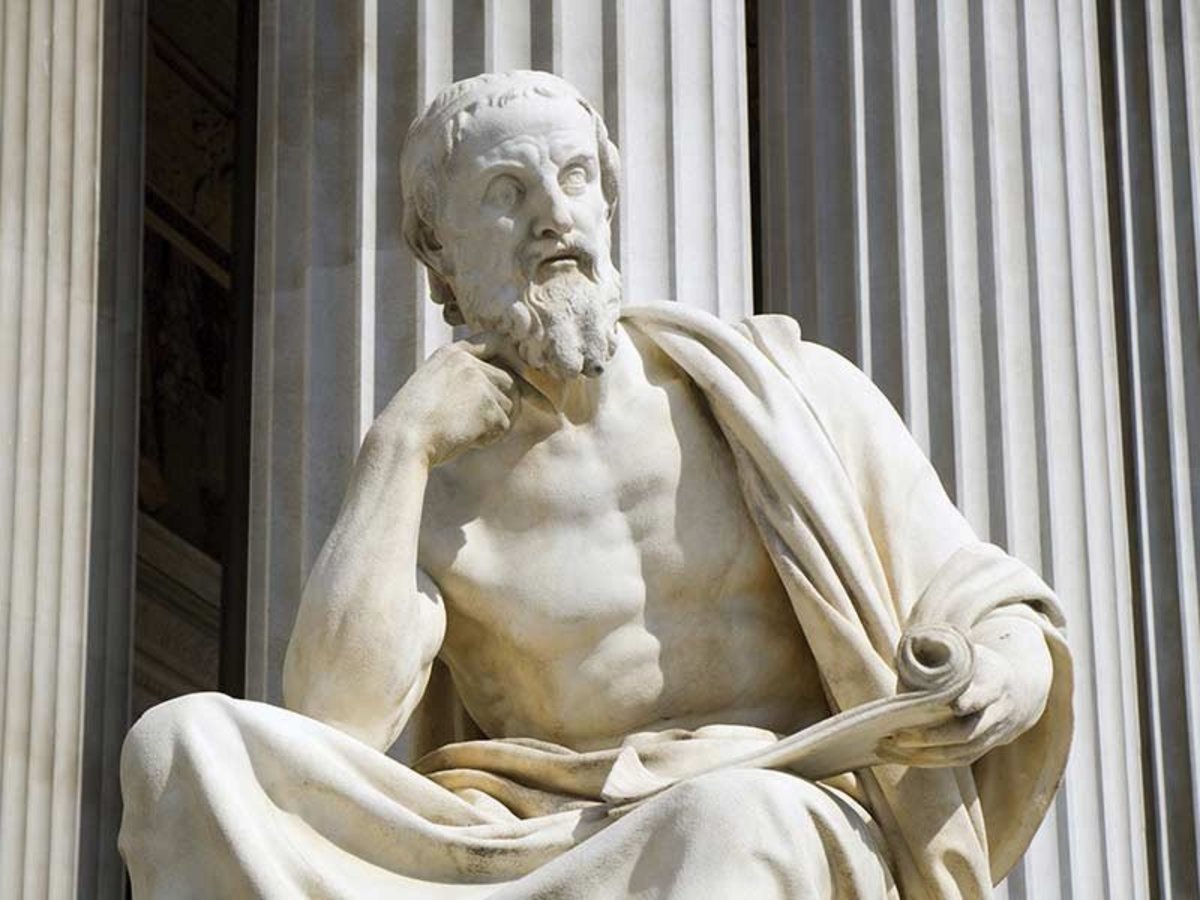Diversions in Classical Marxism and Socialism

Marx could not have possibly envisioned how many ideological makeovers his Manifesto would go through. Proclaiming liberty to the working classes, he aimed ultimately to better their daily living conditions, which required a violent overthrow of the bourgeois government. He wanted a proletarian government to effectively ensure proletarian interests, which was impossible under the bourgeois government in his time. He proposed state ownership of the means of production instead of private ownership as an alternative suited to proletarian interests. He proposed violent revolutionary methods because that was the only way to bring a democratic proletariat to power. However, as the socio-politico climate changed in Europe, a new generation of Marxists namely Vladimir Lenin, Eduard Bernstein, Rosa Luxemburg and Karl Kautsky gave their interpretations on what Marx said. Bernstein was practical, agreeing with Marx’s original goal of changing working class conditions, but disposing the revolutionary aspect. Lenin championed the establishment of an elite proletarian dictatorship to gain power. Kautsky was the most faithful to Marx’s original interpretation and was certain about the inevitability revolutionary upheaval, though he doubted its timing. Rosa Luxemburg espoused the manifesto’s democratic methodologies especially mass social class consciousness, but firmly opposed a dictatorship. Everyone made their own interpretation of the original idea to suit to their local socio-political needs.
According to Vladimir Lenin, Marxian Socialism is firstly a revolutionary theory that gives birth to a revolutionary movement. Lenin admires the theory’s justification for massive social and political upheavals that will forever smash the bourgeois power structure and bring a new proletarian dictatorship. Lenin says social democracy is not parliamentary reforms brought by bourgeoisie charity. Secondly, Lenin believes Marxian Socialism is theory that facilitates a centralized power structure with elite professional revolutionaries without oversight, secretive and with stable leaders continuing without opposition. Lenin wants a party vanguard with democratic centralism, where the elites can discuss matters openly but would have to unanimously agree to the accepted decisions producing no factionalism. Under this dictatorship the masses “should have the voluptuous pleasure in abandoning himself to the clutch of firm leadership and pitiless discipline” (Luxemburg 6). Thirdly, Lenin believes Marxian Socialism is a theory empowers his party to engineer revolutions on demand. Lenin wanted his party to spearhead revolution on demand, unlike Marx who said the revolution would be the natural non-engineered end result of capitalism. Fourthly, Lenin believes Marxian socialism is not a just theory that only describes “an economic struggle of the workers against the employers and the government.” Lenin is not as concerned about putting the means of production from private into public hands as he is about arming his Bolshevik party with political power. He sees political power vested in the state as the primary goal; unlike Marx, who saw the economic side and proposed the state ownership and power for proletarians as a necessity and not an end in itself.
According to Rosa Luxemburg, Marxist theory firstly predicts the proletariat comes to power after bourgeois domination. She believes bourgeois capitalism is a catalyst for proletarian class consciousness. Secondly, Luxemburg believes Marxism has a tendency for central organization only to promote class consciousness for class unity. In her view the chief socialist organization should unite all workers and worker organizations under one umbrella ignoring differences in religion and race making them conscious of their economic stance. Thirdly, she believes, Marxian Socialism doesn’t call for revolutions to be engineered upon demand but to be generated when the right social conditions exist. She believes the revolution is class agitations that spring up while trying to forge a distinct class identity. Fourthly, she believes Marxian socialism isn’t a minority group’s attempt to overthrow the bourgeois government. Fifthly, she believes Marxian socialism isn’t an ideology that establishes leadership by a few elitists boasting to be leaders of the proletariat and forcing them to obey their rules, while actually alienating them from the political process. Sixthly, Luxemburg believes the Marxist socialist ideology does not ask for the replacement of the bourgeoisie authority with the socialist central committee. Rosa Luxemburg firmly believes Marxian socialism is a democratic process that involves the entire proletariat to be decision makers instead of a strict centralized elitist party vanguard at the helm of affairs deciding everything. Luxemburg denounces super strong centralist tendencies and promotes a democratic party that is not clandestine, accountable and flexible to the proletariat’s need.
According to Karl Kautsky, Marxian Socialism is firstly a revolutionary ideology that organizes believers in to a revolutionary party. Secondly, he believes Marxian Socialism is an exclusive one of a kind ideology which can only address proletarian interests. Thirdly, he believes Marxian Socialism requires the overthrow of private property and institute public production. Fourthly, he believes Marxian Socialism introduces the capture of the political power by the state and promotes its supremacy, which is essential for class domination. Fifthly, he believes a socialist government is unable to share power with capitalists at any time because they conflict in ideologies and the class consciousness will produce antagonism. He maintains that Marxian Socialism cannot agree to legislative compromises made by the bourgeoisie. Sixthly, Kautsky says revolutionary Marxist Socialism isn’t anarchy, bloodshed, arson and murder alone. Seventhly, he believes Marxian socialism does not call for a gradual change of circumstances where socialist goals are adopted by the existing government. Eighthly, he believes Marxian Socialism does not only espouse economic superiority by the proletariat. Ninthly, Kautsky believes Marxian Socialism isn’t a minority party coup as proposed by Blanqui, but a majority overthrow by revolutionary means. Tenthly, Kautsky believed the Manifesto was wrong about the revolution’s timing thought it would inevitably happen someday, and everyone would have to wait for it to occur.
According to Eduard Bernstein, Marxian Socialism is firstly, not the conquest of political power by the proletariat as an end in itself. He firmly believes Marxian Socialism should democratically extend political and economic rights for the working classes. Secondly, Bernstein says Marxian Socialism will not guarantee the immediate collapse of capitalist economy as Marx had predicted. He says this because he saw that people from the middle class were in increasing numbers becoming capitalists. Thirdly, Bernstein believes Marxian type Socialism should not be brought by cataclysmic revolutionary upheaval as originally proposed by Marx. He firmly believes socialist goals and principles should be gradually injected into the government. He says democratic ideals have increased since 1848, which lessen the need of a bloody catastrophe. Bernstein believes revolution was unnecessary because the people to get hurt the most by revolutionary upheaval would be the working class. Fourthly, Bernstein believes, Marxian Socialists should accept the bourgeoisie’s cooperation toward workers’ demands because they were finally and gradually being recognized by the bourgeoisie. Bernstein’s form of Marxism is practical. He keeps the goal of the Marxists Socialist ideology in mind which is to bring better working and living conditions for the people. He cares less about the precise maxims of class antagonism and advocates the adaptation of Marxism according to the evolving socio-politico climate.
The four authors espouse different aspects of classical Marxism and sometimes condemn each other for not having the correct view. Vladimir Lenin concentrates on the aspect of Marxist theory where absolute power is vested within the elite party vanguard, which would lead to a powerful centralized state controlling everything, the means of production being only one among many things. Lenin has a definite goal: to bring a socialist party to rule Russia without any rivaling factions. While Lenin is party and power oriented, Luxemburg promotes the democratic ideal inherent in Marxism because she wants the workers not to be alienated from government. She wants a loose organization, unlike Lenin’s all powerful central committee. She does not favor another dictatorship because that will defeat the purpose of overthrowing the bourgeoisie dictatorship. She wants a mass presence that open and not secretive unlike Lenin’s central organ. Meanwhile Kautsky believes the revolution will occur, but passively waits for it. Kautsky’s goal is not visible like Lenin and Luxemburg who wants another dictatorship and worker unity respectively. Kautsky is willing to wait for the revolution while Lenin wants to immediately engineer one. Eduard Bernstein is the most practical and goal oriented of them all. He keeps in mind that Marx’s ultimate idea was to bring a change in the daily affairs of the working class and proposes an adaptive strategy that cooperates with the existing government. He disposes the revolutionary aspect because he sees no need for it unlike Lenin and Kautsky who see it as inevitable. He sees that more people in the working class are joining the bourgeoisie for reforms which are gradually aligning with socialist ones: alleviate the daily suffering of the working class. Kautsky and Lenin believe that economic welfare is not the only goal of Marxian Socialism, but political dominance is paramount, while Bernstein concentrates on achieving socio-economic welfare in the current system and Luxemburg wants a democratic transparent political process. Each author concentrates on a different part of classical Marxism to justify what they see is the most necessary.
The four authors’ different interpretation of Marxian Socialism indicate the Marxist movement was transforming to suit to the local needs in various part of Europe. Lenin declared his version of Marxism was adapted specifically for Russian traditions and needs. He wanted a secret elite party vanguard because the tsar employed secret police to root out any political activity. Bernstein’s evolutionary socialism speaks of classical Marxism as adapted and demonstrated on English soil because parliament increasingly enacted measures favoring the working class, and ultimately such laws were what Marxian socialists themselves would enact. Luxemburg’s democratic style for the proletariat indicates social democracy as instituted on German soil. The Marxist movement was transforming in to local adaptations throughout Europe and the proof is the four different views espoused by Lenin, Luxemburg, Kautsky and Bernstein. The Marxist ideal was grand and everyone wanted it to be implemented. Each author championed parts of it that would enable him or her to bring a socialist government in their home country.
Communism Books
Work Cited
Bernstein, Eduard. “Evolutionary Socialism.” 31 October 2008. http://www.marxists.org/reference/archive/bernstein/works/1899/evsoc/preface.htm
Kautsky, Karl. “The Road to Power.” 29 October 2008. http://trotsky.org/archive/kautsky/1909/power/ch01.htm
Lenin, Vladimir Ilich. “What is to be Done?” 30 October 2008. http://artsci.shu.edu/reesp/documents/Lenin--chto%20delat.htm
Luxemburg, Rosa. “Leninism or Marxism?” 29 October 2008. http://www.marxists.org/archive/luxemburg/1904questions-rsd/ch01.htm
Related Readings
- Convictions on World War I: The War and The Workers by Rosa Luxemburg
Thrice handicapped--a woman, a Pole, and a Jew-- Rosa Luxemburg was the most eloquent voice of the left wing of German Social Democracy, the defender of Marxist purity against all comers, and a constant advocate of radical action. - The Anguish of The Communist Ideal in Russia
The ideal of communism was very attractive to many revolutionaries in the twentieth century, who were seeking to overthrow the old and repressive monarchies. They wanted a new government that would suit their needs and abolish poverty from society. - The Russian Revolution Symbolism in Animal Farm
The book Animal Farm by George Orwell brings the serious tone of the Russian Revolution and WWII into a humorous book about farm animals. Find the symbolisms and the keys to understanding the historical events. - Ending the Maoist insurgency in India
Throughout the districts and states of Eastern and Central India, Maoist-Communist inspired rebels known as Naxalites train, recruit, indoctrinate and spread their beliefs among poor locals and villagers.





